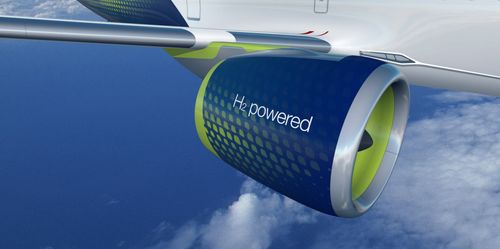The U.S. Environmental Protection Agency has announced its selections for $20bn in grant awards under two competitions within the $27 billion Greenhouse Gas Reduction Fund (GGRF), which was created under the Inflation Reduction Act as part of President Biden’s Investing in America agenda, according to a news release.
The three selections under the $14bn National Clean Investment Fund and five selections under the $6bn Clean Communities Investment Accelerator will create a national clean financing network for clean energy and climate solutions across sectors, ensuring communities have access to the capital they need to participate in and benefit from a cleaner, more sustainable economy.
By financing tens of thousands of projects, this national clean financing network will mobilize private capital to reduce climate and air pollution while also reducing energy costs, improving public health, and creating good-paying clean energy jobs in communities across the country, especially in low-income and disadvantaged communities.
National Clean Investment Fund (NCIF) Selectees
Under the $14 billion National Clean Investment Fund, the three selected applicants will establish national clean financing institutions that deliver accessible, affordable financing for clean technology projects nationwide, partnering with private-sector investors, developers, community organizations, and others to deploy projects, mobilize private capital at scale, and enable millions of Americans to benefit from the program through energy bill savings, cleaner air, job creation, and more. Additional details on each of the three selected applicants, including the narrative proposals that were submitted to EPA as part of the application process, can be found on EPA’s Greenhouse Gas Reduction Fund NCIF website.
All three selected applicants surpassed the program requirement of dedicating a minimum of 40% of capital to low-income and disadvantaged communities. The three selected applicants are:
- Climate United Fund ($6.97 billion award), a nonprofit formed by Calvert Impact to partner with two U.S. Treasury-certified Community Development Financial Institutions (CDFIs), Self-Help Ventures Fund and Community Preservation Corporation. Together, these three nonprofit financial institutions bring a decades-long track record of successfully raising and deploying $30 billion in capital with a focus on low-income and disadvantaged communities. Climate United Fund’s program will focus on investing in harder-to-reach market segments like consumers, small businesses, small farms, community facilities, and schools—with at least 60% of its investments in low-income and disadvantaged communities, 20% in rural communities, and 10% in Tribal communities.
- Coalition for Green Capital ($5 billion award), a nonprofit with almost 15 years of experience helping establish and work with dozens of state, local, and nonprofit green banks that have already catalyzed $20 billion into qualified projects—and that have a pipeline of $30 billion of demand for green bank capital that could be coupled with more than twice that in private investment. The Coalition for Green Capital’s program will have particular emphasis on public-private investing and will leverage the existing and growing national network of green banks as a key distribution channel for investment—with at least 50% of investments in low-income and disadvantaged communities.
- Power Forward Communities ($2 billion award), a nonprofit coalition formed by five of the country’s most trusted housing, climate, and community investment groups that is dedicated to decarbonizing and transforming American housing to save homeowners and renters money, reinvest in communities, and tackle the climate crisis. The coalition members—Enterprise Community Partners, LISC (Local Initiatives Support Corporation), Rewiring America, Habitat for Humanity, and United Way—will draw on their decades of experience, which includes deploying over $100 billion in community-based initiatives and investments, to build and lead a national financing program providing customized and affordable solutions for single-family and multi-family housing owners and developers—with at least 75% of investments in low-income and disadvantaged communities.
Clean Communities Investment Accelerator (CCIA) Selectees
Under the $6 billion Clean Communities Investment Accelerator, the five selected applicants will establish hubs that provide funding and technical assistance to community lenders working in low-income and disadvantaged communities, providing an immediate pathway to deploy projects in those communities while also building capacity of hundreds of community lenders to finance projects for years. Each of the selectees will provide capitalization funding (typically up to $10 million per community lender), technical assistance subawards (typically up to $1 million per community lender), and technical assistance services so that community lenders can provide financial assistance to deploy distributed energy, net-zero buildings, and zero-emissions transportation projects where they are needed most. 100% of capital under the CCIA is dedicated to low-income and disadvantaged communities. Additional details on each of the five selected applicants, including the narrative proposals that were submitted to EPA as part of the application process, can be found on EPA’s Greenhouse Gas Reduction Fund CCIA website.
The five selected applicants are:
- Opportunity Finance Network ($2.29 billion award), a ~40-year-old nonprofit CDFI Intermediary that provides capital and capacity building for a national network of 400+ community lenders—predominantly U.S. Treasury-certified CDFI Loan Funds—which collectively hold $42 billion in assets and serve all 50 states, the District of Columbia, and several U.S. territories.
- Inclusiv ($1.87 billion award), a ~50-year-old nonprofit CDFI Intermediary that provides capital and capacity building for a national network of 900+ mission-driven, regulated credit unions—which include CDFIs and financial cooperativas in Puerto Rico—that collectively manage $330 billion in assets and serve 23 million individuals across the country.
- Justice Climate Fund ($940 million award), a purpose-built nonprofit supported by an existing ecosystem of coalition members, a national network of more than 1,200 community lenders, and ImpactAssets—an experienced nonprofit with $3 billion under management—to provide responsible, clean energy-focused capital and capacity building to community lenders across the country.
- Appalachian Community Capital ($500 million award), a nonprofit CDFI with a decade of experience working with community lenders in Appalachian communities, which is launching the Green Bank for Rural America to deliver clean capital and capacity building assistance to hundreds of community lenders working in coal, energy, underserved rural, and Tribal communities across the United States.
- Native CDFI Network ($400 million award), a nonprofit that serves as national voice and advocate for the 60+ U.S. Treasury-certified Native CDFIs, which have a presence in 27 states across rural reservation communities as well as urban communities and have a mission to address capital access challenges in Native communities.






